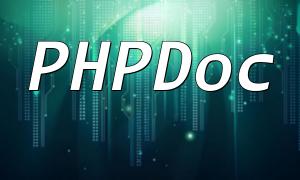PHP 8 is a major update to the PHP programming language, released in November 2020. It introduces a range of performance enhancements and syntax improvements that make development faster, cleaner, and more efficient. Below are the core features and improvements in PHP 8.
PHP 8 introduces the Just-In-Time (JIT) compilation engine, which compiles PHP code into native machine code. This can significantly improve execution speed, especially for CPU-intensive or long-running processes, with performance gains of up to 1.5–3x in some benchmarks.
Named parameters allow developers to pass arguments to a function by name instead of relying on their order. This makes function calls clearer and easier to read, particularly for functions with multiple optional parameters.
function createUser($name, $age, $role) {
// ...
}
createUser(role: 'admin', name: 'Tom', age: 30);
PHP 8 supports union types, enabling parameters or return values to have multiple possible types. This adds flexibility while maintaining strong typing.
function setId(int|string $id) {
// $id can be either an integer or a string
}
PHP 8 adds native attributes, allowing developers to attach structured metadata to classes, methods, and properties. This is especially useful for frameworks, documentation tools, and runtime reflection.
#[Route('/user')]
class UserController {
// ...
}
Constructor property promotion simplifies class property declaration and initialization. Developers can declare and assign properties directly in the constructor parameters, reducing repetitive code.
class User {
public function __construct(private string $name, private int $age) {}
}
The match expression is an improved version of switch statements, offering stricter comparison and the ability to return values directly, resulting in more concise code.
$status = match($code) {
200 => 'OK',
404 => 'Not Found',
500 => 'Server Error',
default => 'Unknown',
};
The nullsafe operator (?->) lets you safely access object properties or methods without throwing an error when the object is null.
$country = $user?->getAddress()?->getCountry();
PHP 8 refines the type system by improving type inference, adding stricter type checks, and expanding support for advanced type declarations. These enhancements make code more robust and easier to maintain.
Error and exception handling have been enhanced in PHP 8, giving developers finer control over error reporting levels and exception management, leading to more predictable debugging behavior.
PHP 8 addresses inconsistencies in syntax and behavior, standardizing language constructs and making code more consistent and readable.
PHP 8 represents a significant milestone in the evolution of PHP. It boosts performance, modernizes syntax, and enhances developer productivity. For teams maintaining or developing large-scale applications, upgrading to PHP 8 offers tangible benefits in speed, stability, and code quality.









